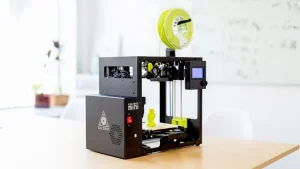The world of healthcare is evolving rapidly, and with it, the demand for skilled medical coders is skyrocketing. A Certified Professional Coder (CPC®) credential, awarded by the American Academy of Professional Coders (AAPC), is your golden ticket to a rewarding and in-demand career in this dynamic field. But the path to becoming a CPC® isn’t a walk in the park; it requires dedication, strategic planning, and a deep understanding of the exam’s intricacies. This guide goes beyond the typical “how to pass the CPC exam” advice, offering you a personalized roadmap to navigate the challenges and emerge victorious.
More Than Just Passing
Passing the CPC exam isn’t just about checking a box; it’s about demonstrating your mastery of medical coding principles. This mastery translates into job security, career advancement opportunities, and the satisfaction of knowing you play a vital role in the healthcare ecosystem. This guide will equip you with the knowledge, strategies, and resources to approach the exam with confidence and achieve not just a passing score, but a level of proficiency that sets you apart in the competitive job market.
Unveiling the CPC Exam Structure

Imagine stepping onto a battlefield without a map; that’s what preparing for the CPC exam feels like without a clear understanding of its structure. The exam is a comprehensive assessment of your coding knowledge, encompassing a wide range of medical specialties and coding scenarios. Here’s a breakdown to illuminate the path ahead:
- Format: The CPC exam is a computer-based test consisting of 150 multiple-choice questions.
- Duration: You’ll have 5 hours and 40 minutes to complete the exam, providing ample time to carefully consider each question.
- Content: The exam questions are meticulously crafted to evaluate your understanding of various coding concepts, including:
- Medical Terminology: A strong foundation in medical terminology is non-negotiable, as you’ll need to decipher medical reports and accurately assign codes.
- Anatomy and Physiology: Understanding the human body’s structure and function is crucial for selecting appropriate codes based on the procedures and diagnoses encountered.
- ICD-10-CM Coding: This coding system is used to classify diagnoses and health conditions, forming the backbone of medical billing and reimbursement.
- CPT® Coding: The CPT® coding system is your guide to accurately representing medical procedures and services performed by healthcare providers.
- HCPCS Level II Coding: This coding system comes into play when billing for medical supplies, equipment, and services not included in the CPT® code set.
Eligibility Requirements
Before diving headfirst into exam preparation, it’s essential to ensure you meet the eligibility criteria set forth by the AAPC. This step ensures you’re on the right track and avoids any surprises down the road. Here’s a rundown of the requirements:
- High School Diploma or Equivalent: This foundational educational requirement ensures you possess the basic literacy and comprehension skills necessary to grasp complex coding concepts.
- Coding Education or Experience: The AAPC offers two pathways to meet this requirement:
- Completion of an AAPC-approved coding program: This option provides a structured learning environment and equips you with the essential knowledge and skills to excel in medical coding.
- Minimum of two years of verifiable coding experience: If you’ve gained practical coding experience through on-the-job training or previous roles, this experience can serve as your gateway to the exam.
Familiarize Yourself with Official Coding Guidelines
In the world of medical coding, official coding guidelines are the rules of the game. These guidelines, published by CMS and other organizations, provide specific instructions on how to accurately assign codes in various scenarios. Mastering these guidelines is crucial for achieving coding accuracy and passing the CPC exam.
Mastering the Art of Medical Coding
Understanding the exam structure and gathering the right resources is just the first step. To truly conquer the CPC exam, you need to delve into the heart of medical coding, mastering the intricacies of code sets, developing effective study strategies, and honing your time management skills.
Mastering the CPT® Coding System
The CPT® coding system is your key to unlocking the language of medical procedures. This intricate system assigns unique codes to represent a vast array of medical, surgical, and diagnostic services. To master CPT® coding, consider these strategies:
- Understand the structure: The CPT® code book is organized into sections based on medical specialties, making it easier to locate specific codes.
- Pay attention to code descriptions: Each CPT® code has a detailed description outlining the procedure or service it represents. Carefully analyze these descriptions to ensure you select the most accurate code.
- Learn common modifiers: Modifiers are two-digit codes appended to CPT® codes to provide additional information about a procedure or service. Mastering common modifiers is essential for accurate coding.
Develop Effective Study Strategies
Effective studying isn’t about cramming information; it’s about adopting strategies that align with your learning style and optimize knowledge retention. Here are some proven techniques to incorporate into your study plan:
- Active Recall: Instead of passively rereading notes, actively recall information by testing yourself with flashcards, practice questions, or summarizing concepts from memory.
- Spaced Repetition: Space out your study sessions over time, revisiting material at increasing intervals. This technique leverages the science of forgetting and helps solidify information in your long-term memory.
- Interleaving: Mix up different coding concepts and subjects during your study sessions. Interleaving forces your brain to work harder to retrieve information, enhancing learning and retention.
Identify and Target Weak Areas
No one is perfect, and everyone has their coding weaknesses. The key is to identify these areas early on and focus your study efforts on strengthening them. Analyze your performance on practice exams, pay attention to areas where you constantly struggle, and dedicate extra time to mastering those concepts.
Enhance Time Management Skills
Time management is crucial during the CPC exam. You’ll need to pace yourself effectively to answer all 150 questions within the allotted time. Here are some tips to optimize your time:
- Practice timed exams: Simulate exam conditions by taking practice exams under timed conditions. This will help you gauge your pacing and identify areas where you need to improve your speed.
- Prioritize questions: If you encounter a challenging question, don’t dwell on it for too long. Mark it and move on, returning to it later if time permits.
- Avoid distractions: Create a distraction-free environment during the exam. Silence your phone, wear noise-canceling headphones if necessary, and focus solely on the task at hand.
Join Study Groups or Coding Communities
The journey to becoming a CPC® doesn’t have to be a solitary one. Joining a study group or online coding community offers numerous benefits:
- Shared knowledge: Learn from others’ experiences, gain insights into challenging concepts, and benefit from diverse perspectives.
- Motivation and accountability: Stay motivated and accountable to your study goals by connecting with others who understand the challenges and triumphs of exam preparation.
- Support system: Preparing for a challenging exam can be stressful. A study group or online community provides a supportive environment where you can share your concerns, celebrate successes, and navigate the journey together.
Utilize Memory Aids for Retention

Memory aids, also known as mnemonics, are powerful tools for enhancing information retention. These techniques leverage associations, rhymes, or acronyms to make complex information more memorable. Here are some examples:
- Acronyms: Create acronyms using the first letter of each word in a list or concept. For example, to remember the different types of medical coding audits, you could use the acronym RACER (Random, Automated, Comprehensive Error Rate).
- Rhymes and Jingles: Rhymes and jingles are catchy and memorable, making them effective for remembering lists or sequences. For example, you could create a rhyme to remember the order of body systems in the ICD-10-CM code book.
- Visualization: Create mental images or diagrams to associate with coding concepts. Visualization can make abstract information more concrete and easier to recall.
Conclusion
Passing the CPC exam is a significant accomplishment that opens doors to a rewarding and in-demand career in healthcare. By understanding the exam structure, utilizing effective study strategies, and seeking support when needed, you can conquer this challenge and achieve your coding aspirations. Remember, your journey to coding excellence begins now. Embrace the challenge, stay committed to your goals, and never stop learning.
ALSO READ: What are the Characteristics of System Scaffolding
FAQs
Don’t be discouraged if you don’t pass the exam on your first attempt. You can retake the exam after a waiting period. Use your score report to identify areas for improvement and adjust your study plan accordingly.
The exam fee varies depending on whether you’re an AAPC member. Membership offers discounted exam fees, making it a worthwhile investment for aspiring coders.
Your CPC certification is valid for two years from the date you passed the exam. You’ll need to renew it every two years by earning the required CEUs.
Set realistic goals, break down your study material into manageable chunks, reward yourself for progress, and connect with other coders for support and motivation.
The AAPC offers practice exams on their website, and numerous online platforms provide CPC exam preparation materials, including practice questions and mock exams.




